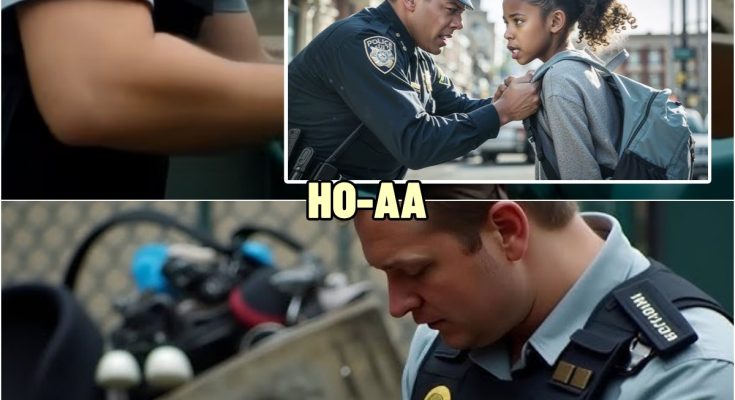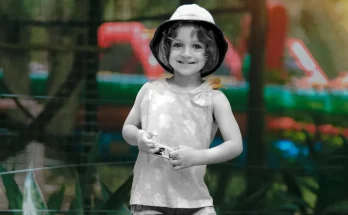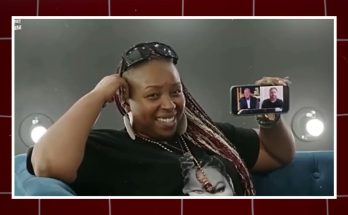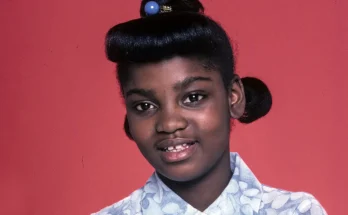It was just past midnight in the forgotten south end of the city, where broken streetlights cast long shadows over abandoned warehouses and hope was in short supply. Officer Nolan Granger, a ten-year veteran of the force, was patrolling his usual beat when he heard a cry echoing through the cold night air. At first, he thought it was a stray cat. But as he stepped from his cruiser and followed the desperate sound through a maze of trash bins and debris, he found something that would change his life forever.

There, inside a dumpster, wrapped in a stained T-shirt, was a newborn Black baby. The umbilical cord was still attached. The infant was barely breathing, shivering in the chill. Nolan acted on instinct—he peeled off his police jacket, swaddled the baby, called for backup, and rushed him to the nearest hospital. The baby survived. The nurses named him “Chance.”
No parents came forward. No missing child report was filed. As the days passed, and the city moved on, Nolan couldn’t forget the tiny life he’d saved. He and his wife Natalie, who had struggled for years with infertility, became Chance’s foster parents. After a long year of legal battles, they adopted him. Chance Granger became their son.
Seventeen years passed in what felt like a heartbeat. Chance grew up smart, funny, and endlessly curious. He loved space documentaries, had infectious dimples, and asked deep questions at the most inconvenient times. His skin was different from Nolan and Natalie’s, but the Grangers raised him with honesty and love. Nolan once told him, “We found you on a night when the world was supposed to forget you. But I didn’t. I never will.” Chance never forgot it either.
He dreamed of becoming a doctor—maybe a forensic pathologist, someone who could give a voice to the forgotten. Life wasn’t always easy. People stared at the grocery store. Strangers asked where his “real family” was. But the Grangers were happy. They were family. Until the knock at the door.
It was a Thursday afternoon. Nolan opened the door to find two men in suits. “Officer Granger?” the taller one asked. “We’re with the FBI. May we come in?” Nolan, puzzled, let them inside. Their faces were unreadable. “We’re investigating a missing child case,” the shorter agent explained. “A cold case from seventeen years ago. We believe the child was abducted from his biological family shortly after birth. He’s believed to be alive.” Nolan’s heart pounded.

The taller agent continued, “We have reason to believe that child may be living under a different name.” They looked at Nolan. “May we speak with your son, Chance?” Natalie appeared, her eyes wide with fear. “What’s going on?” The agent replied, “We also need a DNA sample—to rule out a match.”
“You think he was kidnapped?” Nolan asked, incredulous.
“It’s one of the possibilities,” the agent replied.
“I pulled that baby out of a dumpster!” Nolan protested.
“We know the story. It’s in the file,” the agent said. “But new evidence suggests Chance may not have been abandoned.”
“Then where was his family for seventeen years?” Natalie asked, her voice shaking.
“We’re trying to answer that now,” the agent said.
Chance sat across from the agents, hands clenched tight in his lap. Nolan had seen his son cry only twice before. This was the third time.
“Do you think I was kidnapped?” Chance asked quietly.
Nolan shook his head. “No. I don’t. But we’ll do the test. We’ll clear this up.”
The DNA swab was quick. The agents left. The silence that followed was almost unbearable.
Two weeks later, the results arrived. The DNA matched. Chance Granger was biologically related to a woman named Lana McKinley, reported missing in Alabama shortly after giving birth in a private home clinic that was later shut down for malpractice. Lana had died during childbirth, and her newborn had disappeared. Foul play was suspected. The last person seen near the clinic? A man in a police uniform matching Nolan’s build.
The FBI returned, this time with handcuffs. They arrested Nolan in front of his son, charging him with interference in a federal investigation, obstruction, and suspicion of illegal custody. Nolan sat in the back of a federal vehicle, stunned, as Chance ran into the street screaming, “You said you found me!” “I did!” Nolan shouted through the window. “I swear to God, Chance, I saved you.”
Natalie collapsed on the porch, sobbing.
In custody, Nolan was interrogated for nine hours. The agents showed him grainy footage: a man in uniform near the clinic, no face visible, but the time and place matched. The baby was gone. Nolan repeated the same thing: “I didn’t take him. I didn’t know he had a family. I found him, that’s all I did.” But suspicion clung to him like smoke.
Meanwhile, Chance refused to accept the story. He contacted the reporter who had covered his adoption, combed through hospital logs, searched public records, and pored over video archives. One night, while reviewing a corrupted old video from a gas station near the warehouse, he found something—a shadowy figure, a woman in a hoodie, placing something into the dumpster behind the building. She looked back once. It wasn’t Nolan. It was someone else. Someone familiar.
With the help of Jonah, a civil rights lawyer, Chance enhanced the footage. The woman’s face was revealed: Nia Fletcher. She’d been Nolan’s former partner on the force and had vanished the same year Chance was adopted. She had resurfaced under a new name in Arkansas, working as a security guard.
Jonah called in a favor. A week later, Nia Fletcher was arrested. Her confession shattered everything.
She admitted she’d found the baby first. Off-duty, leaving a nearby club, she saw a woman—disheveled, bleeding, dying—clutching a newborn. The woman whispered, “He’s not safe. Don’t let him go back.” That woman was Lana McKinley. Nia panicked. She didn’t want to get involved—she’d been drinking, she didn’t want to lose her job. So she placed the baby in the dumpster, hoping someone else would find him. Fate did—Nolan.
When Nia’s confession hit the news, the FBI dropped all charges against Nolan within 48 hours. The press scrambled to reframe the story: Hero cop cleared in cold case. Mistaken identity nearly ruins family. But the damage was done.
Nolan returned home to a crowd of neighbors and friends applauding him. But he searched only for one face—Chance, standing at the edge of the porch, eyes red from sleepless nights. They didn’t speak. They just embraced, and the world seemed to fall away.
Weeks passed. Nolan was reinstated but turned down the badge. “I’ve already protected the most important thing I ever could,” he told reporters. “My son.” Chance was officially added to the McKinley family registry. He traveled to Alabama to meet surviving relatives—an aunt, two cousins. They cried, gave him photo albums and a necklace that once belonged to Lana. But when a cousin asked, “So are you moving here now that you know where you come from?” Chance smiled. “I already have a home.”
That fall, Chance gave a TED Talk titled “Found in a Dumpster, Raised by a Cop, Freed by the Truth.” It went viral. He spoke about identity, forgiveness, being Black in a white household, and the complicated dance between family, justice, and love. About the father who didn’t just find him—he chose him.
A year later, Chance received a full scholarship to Stanford. He handed the acceptance letter to Nolan and said, “You gave me life. Let me go live it.” Nolan choked back a laugh. “Only if you call every Sunday. Deal?” They hugged tighter than ever, knowing some bonds aren’t formed by blood—they’re forged in truth, and unbreakable by time.



